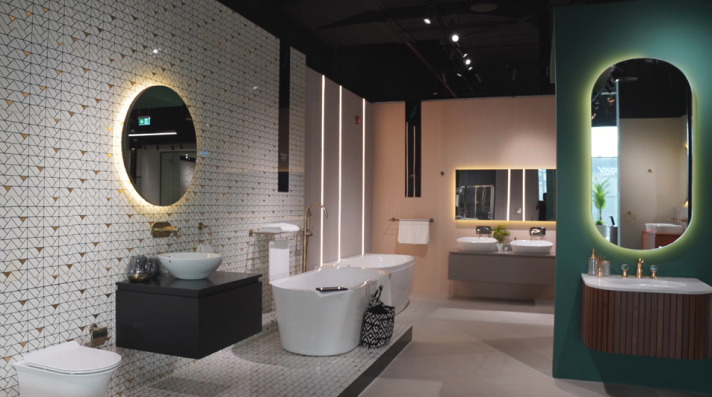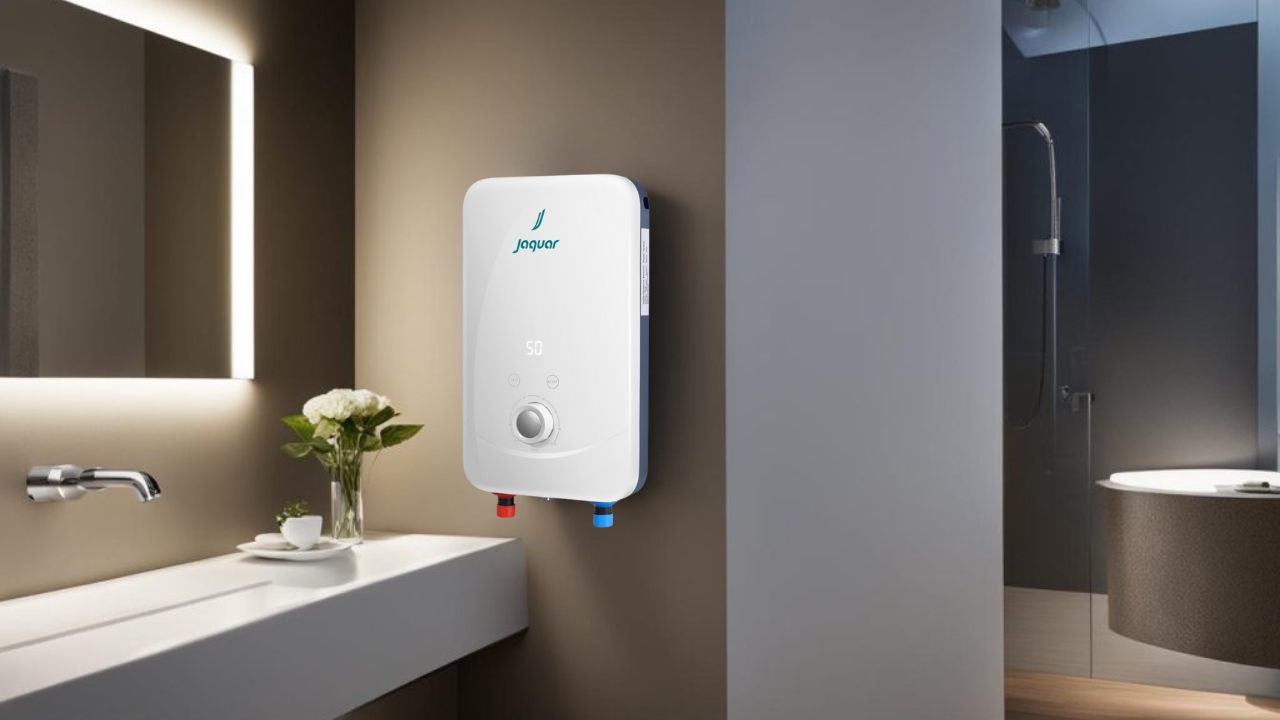For homeowners looking to upgrade their water heating system, tankless water heaters are rapidly growing in popularity. Unlike traditional tank heaters that store heated water, tankless heaters provide hot water directly on demand without a storage tank. This technology offers exceptional efficiency along with space-saving design benefits.
In this comprehensive guide, we’ll examine how tankless water heaters work, compare them to conventional tank models, break down the efficiency gains and space savings you can expect, and provide an overview of costs. If you’re considering a switch to tankless, read on to learn why more and more homeowners are making the change.
How On-Demand Tankless Water Heaters Work
To understand why tankless heaters are more efficient, it helps to first look at how they operate. Tankless heaters do not actually have a storage tank. Instead, they utilize a heat exchanger with gas burners or electric heating elements that instantly heat water as needed.
When you turn on a hot water tap, cold water travels into the tankless unit. Sensors detect the flow of water through the heat exchanger. Burners or heating elements then turn on to rapidly heat the water to the desired set temperature before sending it to the tap.
Tankless heaters continually modulate gas or electric power based on hot water demand. As soon as you turn off the tap, heating stops. Because water is heated instantly rather than held in a storage tank, tankless models use energy far more efficiently.
Comparing Tankless and Conventional Tank Water Heaters

Credits: Jaquar
To fully appreciate the improvements tankless water heaters offer, it is useful to contrast them with traditional tank-style heaters:
- Energy Efficiency – Tankless heaters are 24-34% more energy efficient on average due to their on demand heating. This saves significantly on utility bills.
- Hot Water Capacity – Conventional tank heaters have limited hot water that can run out. Tankless heaters provide an endless hot water supply on demand.
- Size – At about the size of a suitcase, tankless units are 60-70% smaller than tank heaters that require large closet spaces.
- Longevity – Tankless heaters last up to 20 years compared to 10-15 years for tank models. Lower maintenance requirements as well.
- Environmental Impact – Tankless heaters reduce carbon emissions and fossil fuel usage from reheating stored tank water.
As you can see, tankless water heaters provide substantial efficiency and performance improvements in nearly every way.
Energy Efficiency and Cost Savings
One of the biggest motivators for switching to tankless is enhanced energy efficiency and the resulting cost savings:
- On-Demand Heating – Rather than maintaining a full tank at temperature 24/7, tankless heaters only heat water as needed, avoiding standby losses.
- Modulating Burners – Tankless heaters have gas burners or electric heating elements that vary output based on demand rather than running at a constant rate.
- Minimal Standby Losses – Storing heated water in tanks results in heat loss 24 hours a day, even when no water is being used. Tankless models have almost zero standby losses.
These efficiency improvements result in significant energy and cost savings:
- 15-30% Lower Water Heating Costs – Homeowners can expect to save 15-30% on water heating costs by upgrading to a tankless heater.
- 5-10 Year Payback Period – Tankless heaters offset those expenses through utility savings over 5-10 years of operation.
For those looking to reduce their energy usage, carbon footprint, and expenses, tankless water heaters make excellent financial and environmental sense.
Unlimited On-Demand Hot Water

Credits: Jaquar
In addition to efficiency, tankless water heaters provide a continuous and unlimited supply of hot water whenever you need it:
- No More Running Out – Tank heaters have a limited hot water capacity before running cold. Tankless models ensure you’ll never run out of hot water again.
- Simultaneous Use – A tankless heater can can provide hot water to different appliances simultaneously, likewise the pressure/flow rate will be distributed.
- Consistent Temperature – Tankless heaters do not allow water temperatures to drop like tank models as they rapidly reheat incoming cold water to the set point.
- Ideal for Large Households – The unlimited hot water makes tankless excellent for larger families with high demand.
If your household complains of frequent cold showers or inadequate hot water pressure, a switch to tankless can provide relief.
Compact, Space Saving Design
In addition to performance advantages, tankless water heaters save a tremendous amount of space:
- Small and Lightweight – Weighing about 60 pounds, tankless heaters are about the size of a carry-on suitcase. Indoor and outdoor models are available.
- Wall-Mounted – Because of their small size, tankless units mount out of the way on a wall. This frees up valuable floor space compared to a bulky storage tank.
- Flexible Venting – Only small diameter ducting is required for exhaust and intake. Venting is simpler than for tank heaters.
- More Installation Options – The compact size lets tankless units fit in tight spaces like attics, closets, garages, crawlspaces, and outside the home.
- Frees Up Room – By moving the water heater off the floor, tankless models leave utility room space open for storage or other uses.
For homes with limited space, tankless water heaters help reclaim area taken up by a conventional tank heater.
Additional Benefits of Tankless Water Heaters

Credits: Jaquar
Aside from efficiency and size, tankless water heaters provide other advantages:
- Longer Lifespan – Tankless units last up to 20 years, nearly twice as long as the 10-15 year average life of tank models. This reduces replacement costs.
- Lower Maintenance – With no tank to corrode and simpler mechanics, tankless heaters require minimal annual maintenance.
- Safety – Without a storage tank, tankless models eliminate the risk of leaks and water damage. They also deter growth of Legionella bacteria.
- Smart Capabilities – Many tankless models allow WiFi monitoring, voice activation, remote temperature controls, and diagnostic alerts.
- Endless Capacity – Larger units can be installed to handle greater hot water demands from multiple bathrooms, appliances, spas, etc.
For those seeking a durable, safe, high-tech appliance, tankless water heaters deliver.
Sizing and Installation
Proper installation is key to maximize the efficiency of a tankless water heater:
- Calculate Peak Demand – Add up the GPM of all fixtures that may run simultaneously to determine peak demand.
- Size Appropriately – Choose a tankless heater rated at least 20% higher than your peak GPM so it can handle maximum loads.
- Hire a Professional – Given their specialized nature, it is advisable to have a qualified plumber or HVAC technician install the unit.
- Consider Electric Models – Homes without natural gas access can benefit from electric tankless heaters, though very large units may require electrical upgrades.
- Venting is Critical – Tankless water heaters require proper exhaust venting for safety and performance. Improper venting can result in serious issues.
- Annual Maintenance – To keep your system running efficiently, annual service by a professional is recommended. This helps maximize lifespan.
Jaquar Provides Efficient and Reliable Water Heaters

Credits: Jaquar
Jaquar is an industry leader in water heaters and plumbing solutions in India. They offer a variety of storage, instant, and heat pump water heaters to suit different needs.
Some top products include:
- Electric storage water heaters: Glass-lined steel tank, superior insulation, ISI-approved heating elements, safety thermostat.
- Instant electric heaters: Copper heating element for instant heat, compact size, coated tank prevents scale buildup.
- Instant gas heaters: Advanced burner for low maintenance, uniform heating, vitreous enameled tank resists corrosion.
- Heat pump water heaters: Reduce electricity usage up to 65% compared to conventional geysers. Ultra quiet compressor optimizes efficiency.
With durable construction, advanced technology, and a wide selection, Jaquar provides high-quality water heating solutions for Indian homes and businesses. Their products deliver reliable performance, safety, and efficiency.
Closing Thought
For homeowners looking to maximize energy efficiency, unlimited hot water, space savings, and convenience, tankless water heaters offer clear advantages over conventional models. Despite moderately higher upfront costs, gas tankless heaters pay back in 5-10 years through utility bill savings. Electric tankless units may take 10-15 years to break even.
With impressive longevity and low maintenance requirements, tankless heaters keep saving homeowners money for decades while providing an endless supply of hot water on demand. For space-challenged homes or those with high hot water needs, tankless models are an increasingly smart choice.


